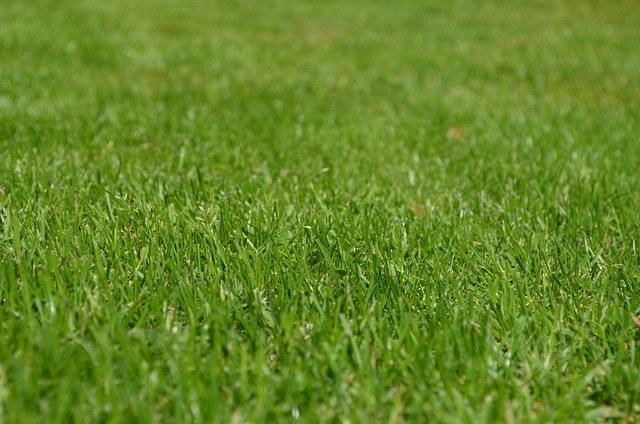Yard waste removal and recycling are pivotal practices in promoting sustainable landscapes and reducing environmental impact. Traditional disposal methods that send organic materials to landfills, where they produce methane, are being replaced with eco-friendly processes that transform waste into useful resources like compost, mulch, and biofuels. Composting enriches soils, diminishes the need for chemical fertilizers, and cuts down on waste going to landfills. Municipalities and private entities have launched dedicated recycling programs for yard waste, leveraging technology such as chippers and advanced systems that produce biogas or biochar. These initiatives not only lessen greenhouse gas emissions but also support renewable energy and reduce communities' environmental footprints, bolstering local ecosystems through responsible management of yard waste. Innovative biodegradable solutions, like compostable bags or bins, are accelerating decomposition and reducing the reliance on synthetic plastics. Both community-led and individual backyard composting efforts are key to recycling organic waste into humus, which in turn enriches garden soils, reduces chemical fertilizer use, and aligns with environmental consciousness, making yard waste removal and recycling a sustainable choice for landscape maintenance. These practices underscore the importance of responsible yard waste management in fostering eco-friendly communities.
titles, yard waste recycling gains momentum as communities and homeowners alike seek eco-conscious methods to manage organic garden refuse. This article delves into the transformative world of sustainable yard waste solutions, highlighting pioneering techniques, community-driven composting initiatives, and innovative biodegradable options that contribute to a healthier planet. By exploring “Yard Waste Removal and Recycling,” we uncover how these practices can effectively reduce environmental impact and foster greener spaces.
- Eco-Friendly Yard Waste Management Techniques
- Community Composting Programs: A Collective Approach to Yard Waste Recycling
- Innovative Biodegradable Options for Yard Waste Disposal
Eco-Friendly Yard Waste Management Techniques

Yard waste removal and recycling are pivotal practices in promoting sustainable landscapes. Traditional yard waste disposal often involves sending grass clippings, leaves, branches, and other organic materials to landfills, where they decompose anaerobically, releasing potent greenhouse gases like methane. However, eco-friendly alternatives transform this waste into valuable resources. Composting is a cornerstone of sustainable yard waste management; it recycles organic matter back into the soil, improving its structure and fertility. This process not only reduces landfill waste but also creates nutrient-rich humus that can be used to enrich garden soils, reducing the need for chemical fertilizers.
Furthermore, municipalities and private companies are increasingly offering yard waste recycling programs, which may include chippers that turn branches and woody debris into mulch or wood chips, which can then be utilized as soil amendments or pathway materials. These programs often collect yard waste separately from other waste streams to ensure proper processing. Additionally, some advanced systems convert yard waste into biogas or biochar, further closing the loop on organic waste and providing renewable energy sources. By adopting these eco-friendly yard waste removal and recycling techniques, communities can significantly diminish their environmental footprint while nurturing healthy ecosystems within their local environments.
Community Composting Programs: A Collective Approach to Yard Waste Recycling

Community composting programs represent a collaborative effort to address yard waste removal and recycling. These initiatives harness the organic matter produced by local residents, such as grass clippings, leaves, and garden trimmings, transforming it into nutrient-rich compost. By participating in such programs, communities can reduce the volume of waste sent to landfills, mitigate methane emissions from decomposing organic material, and enrich soil health on a collective scale. The process not only diverts yard waste from the waste stream but also supports sustainable agriculture practices by providing high-quality compost.
Participants in community composting programs often have access to educational resources that guide them on how to prepare their yard waste for composting, ensuring the material contributes positively to the composting process. These programs can take various forms, including curbside pickup services, drop-off centers, and communal composting sites where residents can bring their organic waste. The aggregation of yard waste through these methods allows for more efficient processing, utilization of technology like aeration systems to accelerate decomposition, and the production of a valuable product that can be distributed back to the community, thereby closing the loop on the yard waste recycling cycle. Engaging in community composting programs is not only an environmentally responsible choice but also fosters a sense of shared stewardship for the environment among participants.
Innovative Biodegradable Options for Yard Waste Disposal

Yard waste, such as leaves, grass clippings, and garden trimmings, can be significantly reduced in volume through innovative biodegradable options, which not only enhance sustainability but also contribute to yard waste removal and recycling efforts. These options include the use of compostable bags or bins specifically designed for organic materials. Homeowners can place their yard waste directly into these containers, which break down naturally, avoiding the synthetic materials found in traditional plastic bags that can take centuries to decompose. Additionally, community-based composting programs and on-site backyard composting are gaining traction as effective methods to recycle organic matter. These programs transform yard waste into nutrient-rich humus, which can be used to enrich garden soils, thus supporting a healthier ecosystem and reducing the need for chemical fertilizers. The adoption of such biodegradable solutions plays a crucial role in mitigating the environmental impact of yard waste disposal, making them an environmentally responsible choice for maintaining landscapes sustainably. Yard waste removal and recycling through these means not only declutters properties but also contributes to the reduction of greenhouse gas emissions associated with traditional waste management practices. As a result, these innovative options are becoming increasingly popular among environmentally conscious individuals and communities alike.
In conclusion, addressing yard waste sustainably requires a multifaceted approach that includes eco-friendly management techniques, community composting initiatives, and innovative biodegradable solutions for disposal. By adopting these practices, we can significantly reduce the environmental impact of yard waste removal and recycling. Embracing these sustainable methods not only aids in maintaining ecological balance but also fosters community engagement and education on the importance of responsible waste management. Homeowners and communities are encouraged to participate in local composting programs and explore biodegradable options that align with the broader goal of environmental stewardship. Through collective action, we can transform yard waste into a resource rather than a liability, ensuring a greener, more sustainable future for our planet.




